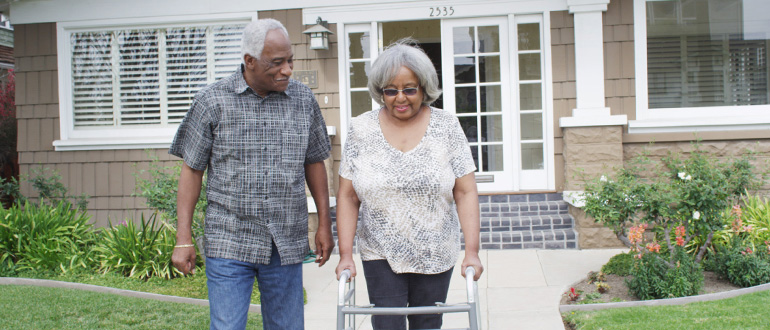Caregivers need care, too

What if you’re caring for a family member unexpectedly? An ill parent, partner, or child can turn your world upside-down.
Not only do you worry about their health, but it can feel as if their comfort and ability to recover is tied to the quality of your care.
That pressure can come from within, from other family members—or from the patient. It can cause deep frustration, which can be compounded by other outside factors, including a lack of resources.
Further issues can stem from confused or conflicting information about the loved one’s condition, not having the ability to ameliorate symptoms and pain, being constantly on-call, or feeling pulled in different directions by medical staff and family members.
Everyone’s situation is different
Caregivers can begin to feel isolated from the lives they lived before their loved ones fell ill. When a sick or disabled loved one becomes the focus of the caregiver’s time and energy, their world narrows, and burnout often results. There are practical components to burnout—but the emotional effects of caregiving cannot be underestimated.
For example, you might be the primary caregiver of a parent, but your care is subject to another sibling’s input and financial contributions. This could leave you feeling out of control and resentful.
Or you may be caring for a partner with a progressive disease, like dementia, watching someone you love change and slip away. You could feel a combination of emotions: gratitude that you can spend time with them, dismay at their deterioration, joy during good times, and profound sorrow during downturns.
Everyone’s situation is different, but those who undergo caregiver burnout usually suffer from similar symptoms. These include fatigue, feeling helpless, problems with your own health, or even abuse or neglect of the patient.
The stakes are high. That’s why it’s so important that caregivers identify when they may be experiencing symptoms of burnout and take steps to alleviate the effects.
Caregivers need care, too
Sit down and write out a list of what’s changed since you became a caregiver. Are you doing all the same things as before (working, caring for children, etc.), but also making sure your now ill parent has transportation to all their medical appointments (for example)? How are you making up the time?
Are you giving up pieces of the life you enjoyed to make the situation work? Are you overloaded and sleeping less than you ought to be?
Identify which parts of your life are being neglected and where your time and energy is being stretched beyond capacity.
Then, set aside a short amount of time each day to identify resources that can help ease the burden of acting as a sole caregiver. Some examples could be:
- Other family members or friends taking on responsibility for tasks large or small
- Meal delivery, housekeeping, or other resources available through community organizations
- Caregiver support groups
- Setting and sticking to a routine
- Open communication with medical staff
Once you’ve identified the resources, start making calls and sending emails until you get to a point where you feel less swamped. Caring for someone you love can be overwhelming. Take care of yourself, so you can continue to take care of your loved ones.






